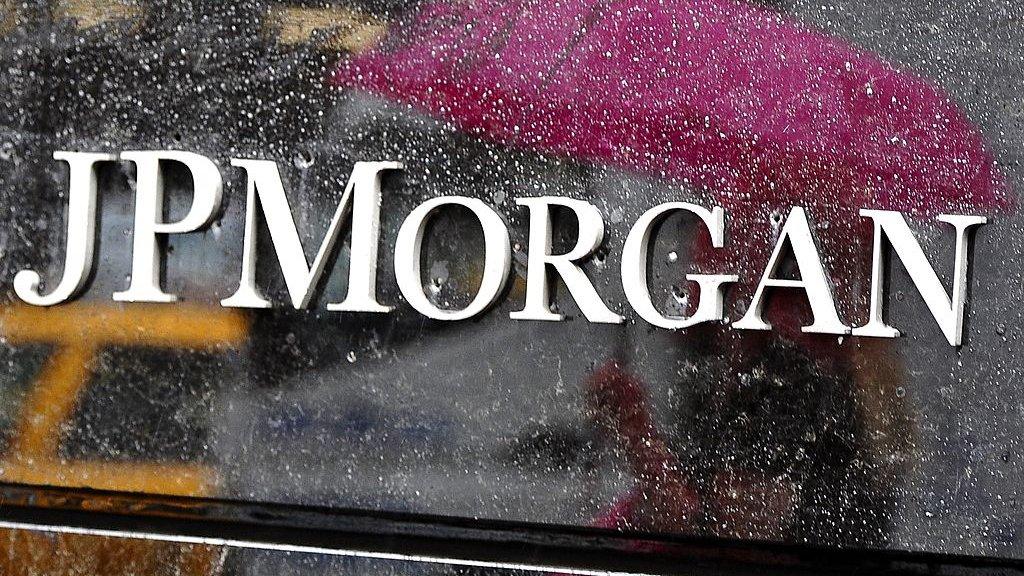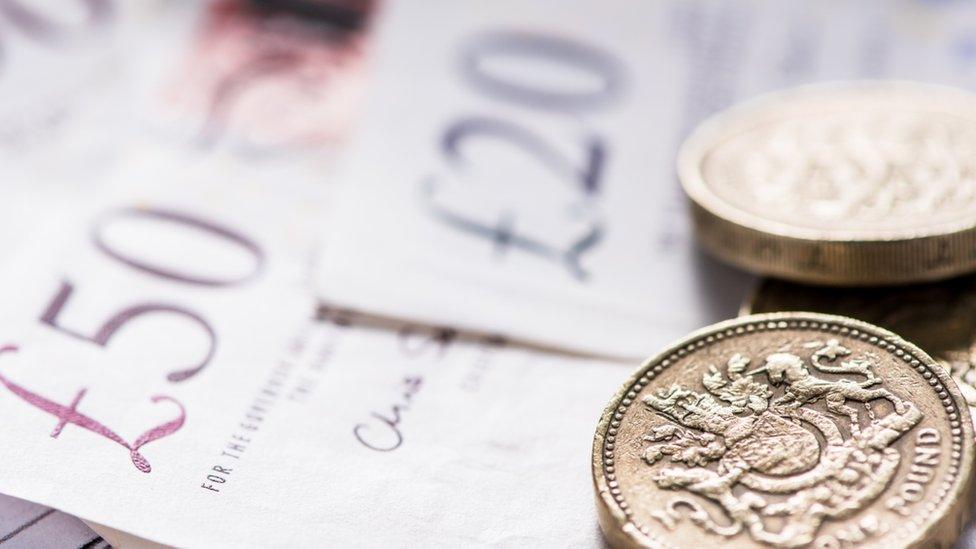Reality Check: Would Brexit put 400,000 jobs at risk?
- Published

The claim: Chancellor George Osborne said during a "town hall" speech to JP Morgan's hub in Bournemouth: "Our analysis shows that in the services sector alone 400,000 jobs could be at risk."
Reality Check verdict: The 400,000 figure is an extrapolation from the Treasury's analysis of the effects of Brexit published last week, which is based on an economic model. Whether you believe its outcomes depends on whether you trust its assumptions.
Speaking at the offices of JP Morgan in Bournemouth, George Osborne warned that a vote to leave the UK would lead to job losses in the services sector. That includes a wide range of businesses including financial services, travel and retail.
The 400,000 figure is an extrapolation from the Treasury's analysis of the short term impact of leaving the EU which was published last week.
The Treasury forecast's central "shock scenario" was that the economy would be 3.6% smaller than it would be if Britain votes to remain. It also said that unemployment would be 500,000 higher.
Service industries account for about 80% of employment in the UK so George Osborne has taken 80% of the Treasury's figure to reach 400,000.
He was backed by Jamie Dimon, the chairman and CEO of JP Morgan, who highlighted the EU's financial services passport system which allows UK-based companies to offer services across the EU. He said that leaving the EU would be "a terrible deal for the British economy and jobs".
Leaders of other service sector companies, including BT, Ocado and Universal Music also signed a statement warning that leaving the EU would put jobs at risk across the range of service industries.
However, George Osborne's 400,000 figure relies on assumptions about what would happen to levels of trade, the value of the pound, and so on. It's a model-based forecast and we've warned about the limitations of economic models before.



- Published3 June 2016

- Published21 March 2016

- Published23 May 2016
- Published22 February 2016
